Season 3, Episode 1
Mastery vs Training
What is mastery? Can you be a master just in theory, or is practice essential — and who decides how much? In this episode, we discuss how “mastery” changes depending on perspective, how we define it, and where we think training fits in.

About this Episode
What is mastery? Can you be a master just in theory, or is practice essential — and who decides how much? In this episode, we discuss how “mastery” changes depending on perspective, how we define it, and where we think training fits in.
People... Products... Places
In this episode, we mention the following:
Transcript
Molly McBeath 0:03
Intro doesn’t have to sound like we’re a game show anymore. Like I can get over that. We’re not a game show.
Betsy Muse 0:11
We’re not gonna love the intro though I love I think I’m serious. I love the liveliness and energy. And maybe it’s because we shoot our well videos, we record our audios on Friday afternoons. And I’m half asleep. And I have my coffee, and then I hear your lovely energy. And it’s like, oh, I can do this.
Molly McBeath 0:38
So you want me to yell at you to wake you up? Because
Betsy Muse 0:39
that There you go.
Molly McBeath 0:42
Okay, well, I wasn’t planning to do that kind of an intro. But we can do it the loud way for Betsy just for Betsy.
Kathleen Fealy 0:54
She does have a lot of influence on us.
Molly McBeath 0:55
She does
Betsy Muse 0:56
What can I say? I’m an influencer.
Kathleen Fealy 1:06
What is mastery? And how important is it to our clients? What is training? Do you need both? These are the kinds of questions that came up during our discussion on mastery and training during this episode of Yes. But however.
Molly McBeath 1:23
And hello, and welcome to Yes, but however, a podcast about marketing business and real life. I’m Molly Macbeth with my co hosts, Betsy Muse and Kathy feely. And today we were going to talk about levels of mastery. And then later we were going to record a different episode. That was about training. And then we realized that these are very connected topics, and we’re not really sure if we can talk about them separate. So we’re gonna record this and see what happens. It’s an experiment.
Betsy Muse 1:57
Oh, experiment?
Molly McBeath 1:59
Yeah,
Betsy Muse 2:00
That makes it sound really sexy. That’s right. I’ll tell you, I’ll tell you the first thing that popped into my mind when we came up with a topic mastery. Not only is it a buzzword that I keep hearing over and over again, but it took me way back to my early days in the Middle Ages. With guilds and you know, there were craft guilds and merchant guilds and for an apprentice or journeymen, to reach a level of mastery, they had to produce a masterpiece. And it was judged by others, whether it was and that these were full members of The Guild, whether it was good enough for that person to become a full member of that Guild and I, we are all not immersed, but have taken a lot of training courses and been in masterminds in our craft. And one of the things I know I have seen, and you can tell me if you’ve seen it, is this obsession with collecting badges from courses. And I just have this feeling that we’ve lost a sense of what true mastery is in a skill or a craft. And it’s not something that you get in just a few hours taking a course and grabbing an automatic badge.
Molly McBeath 3:47
So So you’re saying that those badges are kind of the participant ribbon of, of the adult world.
Betsy Muse 3:55
That’s our participation trophy. But I think sometimes people pass them off as so much more. They they’ve lost their meaning, because they’re so easy to acquire now. Badges are something that will help people finish a course. And if that helps you finish a course if having that as a goal helps you finish the course, finish the course because that’s part of attaining mastery is doing all of the training that it takes to get you there.
Kathleen Fealy 4:28
Now, this is where I thought the topics were very different because you’re talking about the badges and like the quick certificates you can get by taking courses and everything. And that to me is what you get when you try to do quick training. And to me mastery is more about experience. And not only experience for learning how to do things, but one thing that training never seems to do is telling you what to do when everything goes wrong. And that is only learned by experience. And that’s what I consider more than mastery. Right? And
Betsy Muse 5:10
I, I’m agreeing with you there. That’s what I’m saying is that too many times these badges are passed off as mastery. When they are not. They’re too easy to acquire. But yeah, it’s it’s I agree with you completely. It’s this is something that a skill or a craft something that’s honed over time.
Kathleen Fealy 5:33
I will also say, and this isn’t the true spirit of Yes, but however, because I am all three of these, in some cases, that, yes, mastery is important. But even as a beginner, when you’re just learning how to do something, you have more mastery of some skills, then like the person who is hiring you, because they know nothing about it. So or I’ll say, or instead of So, or you may actually be a master at some specific
Molly McBeath 6:10
skill. But
Kathleen Fealy 6:13
you’re working for a client that doesn’t have the time, or the budget, or even the other people resources to help you do your job correctly. So you just have to make it work. So then you can’t say that you’re not mastering it, because you may not master the skill, but you’re mastering the situation. So there’s my Yes, but however,
Betsy Muse 6:39
when I think of mastery, I think of skills. You know, you can be an astute business person, you can be skilled at handling different business situations, but I guess I’m applying mastery to the actual craft. So I’m a copywriter, so I’m applying it to the craft of copywriting.
I wouldn’t necessarily apply mastery to something like the coaching that I do for clients. So I am very, I think of mastery when I think of skills. And because that’s something that tends to have at least a list of things that you have to be able to do in order to consider yourself a master. There have to be some results there. And yet with, you know, to consider myself business savvy, like you said before, I’m able to handle different situations that I might not have been in before, just because I have done this. For so long that let me pull out my little old lady speech. But that I I’ve been in a lot of different situations. So I’m, you know, able to deal with things fairly easily and fairly quickly. Just from the fact that I’ve done it so many times throughout the years. It doesn’t make it any less unpleasant, but it does make it sometimes a little easier.
Betsy Muse 8:28
But I think that’s part of the problem, like our discussion right here is what is mastery? You know, who’s defining it? What does it mean? I take it I literally do think back one of my favorite things to study when I was a kid was the Middle Ages. I thought that was so cool that you could get an apprenticeship at 12 I wanted to move out of my parents house and get an apprenticeship. But it was for boys and I was a girl. But seriously, it’s just I go back. And I think you know, that’s what true mastery is and I don’t in what we do, what is it? And who defines it and how is it set?
Molly McBeath 9:07
Yeah, it’s a tough question to answer. My husband was asking me something similar when I was telling him what we were talking about this week. And yeah, just that it, what mastery is, I think changes over your lifetime, like what I thought was mastery when I was younger, it’s very different from what I would say it is now. I think I’m a lot more discriminating.
Betsy Muse 9:32
I would agree with that. Yeah.
Molly McBeath 9:37
But also, I think it’s also very different by industry.
Betsy Muse 9:40
Yeah, I would agree with that, too. Oh, we’re not yes. But however it I’m agreeing with you too much.
Molly McBeath 9:48
So and yeah, there’s things where I recognize that. I think I’ve I’m pretty good at something I don’t know that I ever would say. I don’t know, is this a personality trait? that I would ever say that I’m a master of something. Yeah. But is that just my Midwestern Scandihoovian nature? Or is it you know, just that I’m not as experienced as I will be someday? I don’t know.
Kathleen Fealy 10:24
Or is that what makes you a master is that you actually know that you have more to master, you actually have the awareness that a lot of people don’t have. When they’re learning a skill, they don’t know what they don’t know, until they are faced with trying to do something that they can’t figure out quite yet.
Molly McBeath 10:46
Right? I think that’s the Buddhist take on it. He says, My guess is that certain more Eastern mindset. There’s so many questions.
Kathleen Fealy 10:58
So let me ask you both. Where do you fit in mastery with the jack of all trades skill, because I’ve always I ran into this years ago, when I did video, people wanted me to specialize where I was a producer, was I a director was I, you know, a talent coordinator, what was I? And I was everything, because I sort of felt like you had to know, you know, I knew how to do lighting, I knew how to do camera, I knew how to do audio, and you had to read the waveform monitors, because it made me better at my job. But then I realized is that more because like even now with the internet, or with marketing, I’m not as skilled as writers is, both of you are, but I can write. I’m not as skilled as a social media promoter as much as others, but I can do it. And so I’m more of a I’ve considered myself a jack of all trades. But I also considered myself also very masterful at many of the things that I do, because I can go into a situation where I can get things done in various areas, and I noticed other people have are struggling with it. So where do you fit the jack of all trades in with mastery?
Betsy Muse 12:23
Well, you know, the most of us who are entrepreneurs are skilled at a lot of different things we have to be, we have to be able to do a lot of different things. That doesn’t necessarily mean we aren’t masters at one or two things. And I know that I have much greater skill in certain areas than I do others. And like Molly, I rarely call myself I’m a master at this. I’m a master that the exception being Master Gardener, because that was the actual title. It’s a volunteer position. And that’s what you’re called when you are serving in that way. So but but as a copywriter, I know that I have so I do lead gen strategy. And in building lead gen funnels, there are a lot of different components. And I I’ve never considered myself an email specialist, but I’m pretty good at a damn nurture sequence. I don’t really do content, but I can whip up a workbook like nobody’s business, where I’m really good as the strategy and understanding what’s appropriate for different situations. But when I pull it all together,
Betsy Muse 13:46
I think I’m not going to consider the whole package, you know that I’ve reached some level of mastery at the whole package, because there are so many different components where I’m just better than average, or skilled. So I think that with a jack of all trades, or Jill of all trades or Swiss Army knife or whatever you want to call it. It’s it’s part of being an entrepreneur, because most of us couldn’t start our business and turn around and hire people to do all the things where we didn’t have skills. Because there are there’s too much to do. And not there’s never enough money to pay someone else to do it all. So we had to learn skills that we didn’t necessarily want or weren’t necessarily part of executing our skill set, but it’s part of being in business. So I just and I don’t think there’s anything wrong with having a whole lot of skills where you’re not trying to attain mastery. You just want to be good enough to get the job done. I don’t Want to be great at Photoshop, I want to be good enough to get the job done. I don’t want to be great at graphic design, I’m terrible at it. But I want to do one, I want to be good enough to get the job done. So I think it’s, I mean, great to have all of those skills. But I think it’s also great to not feel like you have to master every single one of them.
Molly McBeath 15:29
Yeah, I think that’s an important thing to recognize when you run your own business is that you don’t have to master everything. And if you really need a master, because you have a financial issue, or a legal issue or something like that, where you really need a specialist, then you hire out and you get a CPA and you get a lawyer. But yeah, for a lot of things, you just try to find the bare minimum that you need to know that you can get that done and move on.
Molly McBeath 16:24
Well, you’re actually the master of which means you have to put perfectionism aside, I used to be a person of all trades, whatever. A lot more also, just in with the same struggle that you were talking about Kathy have people say, Well, you’re a writer, so then you can write anything, you know. And so, here’s here’s an executive bio, here’s a script for video, here’s a press release. Here’s a white paper, you know, and here’s my website. And, and all sorts of other things that I’ve written over the years. And often, that was the first time I’d ever written that sort of thing. I know the language and I know how to string the words together. That doesn’t mean that I am an expert at some of these things. And that felt really awkward. And I’ve never, I just I don’t like that feeling.
Betsy Muse
Yeah,
Kathy Fealy
we’re just training fit in them.
Betsy Muse 17:33
Yeah. And that’s when I go to training. Yeah. So I think of training as being what you do on your way to mastery. But it isn’t, it isn’t. You can train around skills that you’re not planning on taking to a level of mastery. Because would I take a Photoshop course to get better and faster at it? Yeah, probably, I would. But one of the things that I did when we set this as a topic was I thought about where I would if I if money was no object, where would I spend? I know, where would I spend money to hire people in my business, and that’s where I don’t need to train up to a mastery level. And there was an awful lot that I would pass off to other people. And that’s what really helped me home in on where I want to train or hire more training, so that I can become better at those things. And I found that that has changed over time. It’s no longer in the copywriting arena.
Molly McBeath 18:48
That’s interesting. Mm hmm. Yeah, I do the same thing. There are certain things where I want to get better at something that I’m struggling with. Photoshop is a good example of that kind of thing, where it’s just a very complicated piece of software. And so having somebody who can just say, oh, yeah, this is the sequence of clicks you need to make to do the thing you want to do. And this is how you export it. And then this is what a layer. Yeah, and two hours later, you’ve got what you need, and you can move on and you’ve saved yourself some time going forward. And but then there’s also the training, where I do want to become more of a master and that training tends to be more hands on. Because you need that guide. You need someone who can point out where you’re going wrong and let you practice on your own and then you come in and you actually talk to them but where you’re getting stuck. And yeah, have them put their finger on that spot and say, pay attention to this spot here. So I guess there’s for me, there’s two Different kinds of training, the training, that will save me time. So they don’t have to master it. And, you know, go through the painful practice of mastery. And then there’s the apprenticeship like training,
Kathleen Fealy 20:16
thrown a third type of training. And that is the reboot. I was went to a conference recently, and it brought up topics that I knew about, and actually have done, but I’ve sort of forgotten about it, because it doesn’t come up on a regular basis, it pertains perfectly for much of it. But if I hadn’t gone, I wouldn’t have been reminded that that would be a practice that might be helpful in certain situations. So I consider that reboot training.
Molly McBeath 20:47
I was just reading a book last night, I think it’s called How to take smart notes. Something like that, by I think it’s Sonia Aaron’s I don’t know how to pronounce the person’s name. Um, but in the book, the author was talking about that, we tend to put more emphasis on things that that we’ve learned recently. And we sort of forget how valid the things are that we learned earlier in our lives, even though those might be more correct. than something we learned recently. I thought was an interesting,
Betsy Muse 21:26
that’s interesting. Yeah. I’ll have to sit with that thing to be aware of.
Molly McBeath 21:30
So that, yeah, so that makes sense with what you’re saying about doing the reboot? Is that Yeah, you got to go back sometime to basics and remind yourself of some of those principles, founding principles, so that you’re staying on track, because that is part of mastering as well. Can you pull it all the way back to the beginning? And make sure you’re building it right. And for what we do,
Betsy Muse 21:59
I wonder, does mastery even matter? Is it just a personal does? Does it matter to me personally, or, I don’t know that it matters to any of my clients, as long as I get them results, they don’t care if I’m the master or a master at my craft as long as I get them results. So I wonder if it’s really just a personal in for what we do. It’s it’s something that’s personal. I mean, I understand for you know, someone who’s a woodworker, cabinet, cabinetry, I can’t even say that word anyway. Makes cabinets does you know builds furniture, custom furniture, something Yes, having being a master at their craft might be a selling point. But if there’s no
Kathleen Fealy 22:50
what we do is objective is subjective. Not objective is
Betsy Muse 22:54
going to say if there’s no if there’s no actual What do you say? Like a guiding organization that says this is what you have to do to reach mastery, then does it matter? Is it just something that we want to to know that we are a master at this
Molly McBeath 23:14
craft? Yeah, it’s you can’t prove to somebody you’re a master without showing them your product. Yeah. And the time that it takes you to master varies by the person and the amount of time they’ve spent on it? I don’t know that’s a hard question. It is but I
Kathleen Fealy 23:33
also think that but that’s true though, what you just said nicely because you might want to show them and say okay, here I have mastered this, but it also then relies on what they perceive as mastery or good work right? They might not like especially for writing or something they may not like a style or they may not like the way the words are, they want something short versus long form or whatever and it can be very very different that can be the same with graphics you know, you can have a beautiful you could be a great graphic artist and mastered all of the software and the skills and usability involved etc, etc. But somebody can look at the logo and say I hate that
Molly McBeath 24:19
so when do you feel like you’ve mastered something sufficiently that you can raise your prices
Betsy Muse 24:30
so I raised my prices every year and I not an astronomical amount, but it there are times when
Molly McBeath 24:44
you do a cost of living or percentage or do we feel like that year
Betsy Muse 24:54
I do what I feel like my rates while higher. I’m not the most expensive copywriter on the planet, but I’m not the least expensive either. And so I raise rates, the only time I raise rates outside of my annual increase is when I’m working on something a new skill. Because if I don’t consider myself a specialist in that area, I will charge low rates, because I believe that until I’ve proven myself in that area that I should charge lower rates. So the first five to 10 projects, my rates are going to be below what you would typically think of if you look at my other rates. So I’ve just recently raised my rates on emails, because I have for a long time, I didn’t write emails. And now I’m, it’s almost all I do is write emails.
Molly McBeath 25:56
So yeah. Yeah, I sometimes I hear people talking about well, you know, I, I did this project. And it took me a month. And so now I’m gonna raise my rates.
Betsy Muse 26:11
No, I think I learned enough
Molly McBeath 26:13
in a month. Really? Yeah. I don’t know where they started from. I don’t I don’t
Betsy Muse 26:20
know. I think it would depend where they started from because I have talked to an awful lot of copywriters, who their rates are so low, because they started somewhere like Upwork, or, you know, one of the content mills or something where they’re seeing these just ultra low rates that are outrageously low, and they just need, they need to see what what a reasonable rate looks like. And so sometimes that leap is justified, but it isn’t necessarily based on skill as much as it is. They were already, you know, rock bottom. But yeah, you’re right, there are people who like they have this number in mind, like, once I’ve done it five times, I get to double my rate. Hello, yo, it depends on how low that rate was to begin with. Because I’ve also seen some folks who are charging senior copywriter rates when they’ve been in the game for a year. And that can be dangerous. Because if you start charging premium rates, then your clients are going to expect that you your processes and workflows, and and the way you conduct your business are will be premium, and your results will be premium. Maybe you’ve learned that in a year’s time. Maybe you haven’t.
Molly McBeath 27:46
But yeah. You guys have any metrics for what you consider mastery? was too big of a question. I don’t know if it’s a good question. Well,
Betsy Muse 28:00
I think it’s a good question. Because we we kind of touched on it before where it’s just like, well, who determines what is mastery, especially in something that we do, because there really are no metrics we look at, you know, the results that we get for clients, but getting good results. I mean, there are so many different factors that go into getting good results. And what I do or that it’s not, I can’t point to my work and say, well, it’s 100% because I wrote this kick ass landing page. Because they’ve, you know, they were driving traffic long before they hired me. So, you know, there, there are a lot of factors that go into that. So I I really think that it’s, a lot of times we might acquire a reputation for being masters at our craft, simply because as Kathy has talked about before it is we we survived. We stayed in business long enough. And we made it to a certain point, and have accomplished enough for clients and achieved enough for clients, that it’s assumed we’ve reached a certain level of mastery. And I don’t see any of us calling ourselves master at our craft.
Molly McBeath 29:33
But yeah, that’s true, but I think I’m still here is pretty decent metric. I think so.
Betsy Muse 29:42
I think so.
Kathleen Fealy 29:44
I think the other weird aspect to mastery now that you’re saying that is the fact that we also do know how to speak to clients or if you were not in house even speak to other people that are other stakeholders to explain to them why we’re doing something, and the pros and the cons and what could affect it, etc, etc. Which, if you’re just starting out, I mean, I used to think I knew a lot about what I was doing. But I would learn very quickly that I didn’t know as much as I thought, if I sounded like I was repeating part of a book or a course to a client, or to my boss at a company that I was working for, you know, on a regular basis. And so I think mastery is also not only knowing the skill, but being able to talk to other people, and let them understand why they should do something and why they are doing something, if you are recommending a service to them, or providing a service, quite honestly, whether you’re a true expert, or have numerous years doing something, in a lot of cases, your clients or the company you’re working for, they need a specific skill set and a project completed that we’re able to do. And so they don’t, as long as they’re getting results, zin results to them, we’ve become masters whether or not we ourselves feel that way.
Betsy Muse 31:23
What when Kathy started talking, I was like, Oh, I think she’s going here. And then she went in another direction. So I will go ahead and say this. But I wonder if part of mastery is knowing that you don’t know at all? Yeah, so that you’re always seeking to learn more?
Kathleen Fealy 31:46
Yes, that’s I think, if you’re, if you really know your business, you also know that you don’t know everything. And you have a lot more to learn.
Molly McBeath 31:58
And you can pinpoint not all the things but a lot of things that you don’t know. Whereas when you’re newer to something, again, you just don’t know what you don’t know. Well, there’s one other thing that I wanted to mention, I think that you guys will agree with me that there’s also as I’ve gotten older, that there is a role for both patience and gratitude, in training and teaching yourself something and becoming a master at something that is important to you, for whatever reason, either for, for personal interest, or just because you need to make money at it, to pay your bills and take care of your family. All good reasons. But that I have found that the more patient I am with myself about it, and the more grateful I am for the experience under my belt. The deeper my learning is, but I just wanted to share that with people that sometimes, you know, you just you can’t become a master of all you’re doing is pressuring yourself to master something. That doesn’t help.
Betsy Muse 33:13
No. And I, I think also it’s, you know, give yourself the benefit of time. There’s no rush to mastering something, and just continue to hone your craft and do the things that you need to do produce the results and it’ll come but you know, you don’t have to be an expert after one year. You just have to be good enough.
Molly McBeath 33:43
Because we know there’s more to know
Betsy Muse 33:45
there’s always more to know.
This has been Yes. But however, I’m Betsy Muse with my co host Cathy Bailey and Molly Macbeth. This episode was written, edited and produced by the three of us. Our theme music is tourist in Puntacana, which is available through audio Hebrew, the show’s website where we post show notes, transcripts and more information about us can be found at Yes, but however podcast.com You can contact us through the website or email us at talkers at Yes, but however podcast.com Thanks for listening.
Molly McBeath 34:21
It’s time for the disclaimer. The information opinions and recommendations presented on yes but however for general information only, and any reliance on the information provided in this podcast is done at your own risk. No part of this podcast should be considered professional advice. Any products or services mentioned on this podcast come from our personal experience and no person or company has paid for a mention our placement
You might also like...
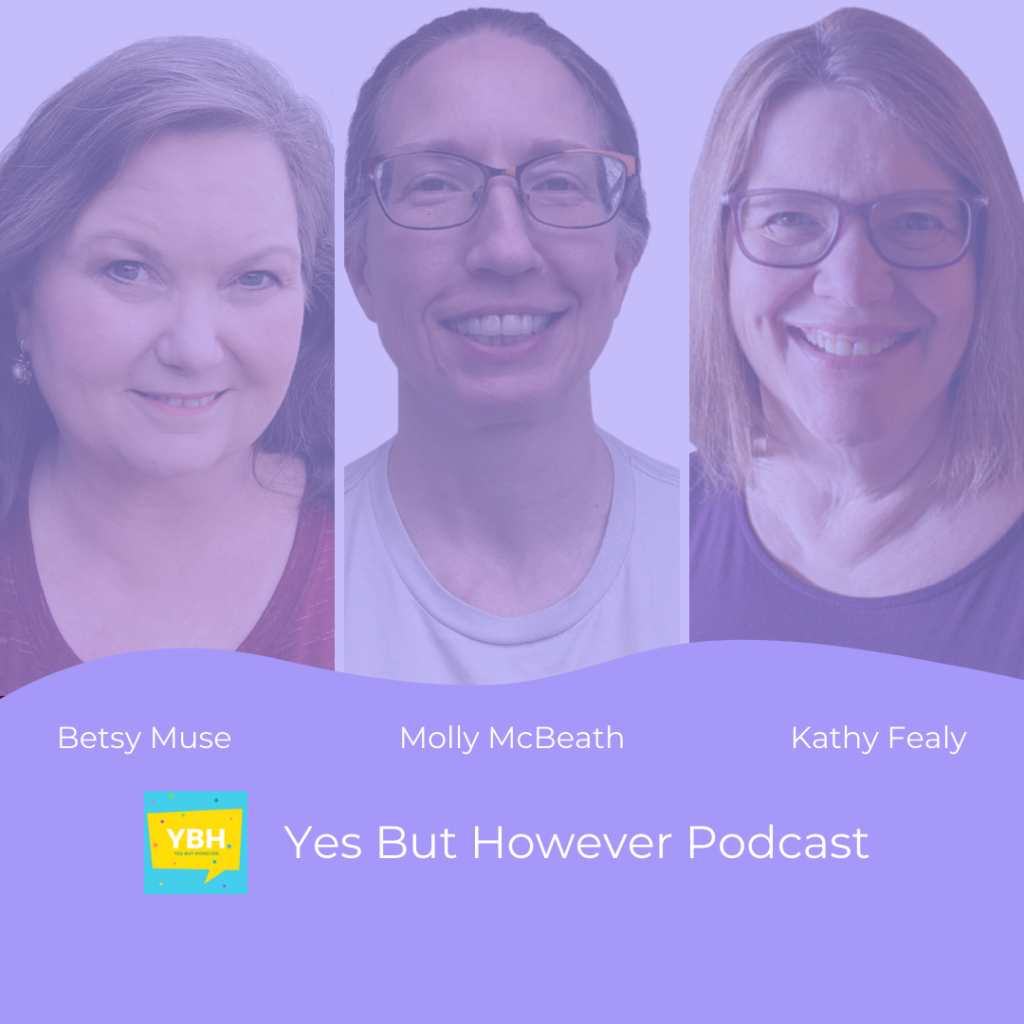
December 2021
S2, Ep 8 - Lightning Round!
What do busy entrepreneurs and podcasters do when they’ve got more tasks than time? Record a lightning round, of course! In this episode, we challenge each other on gifs, social proof, cursing, and how we really feel about business advice from “experts.”
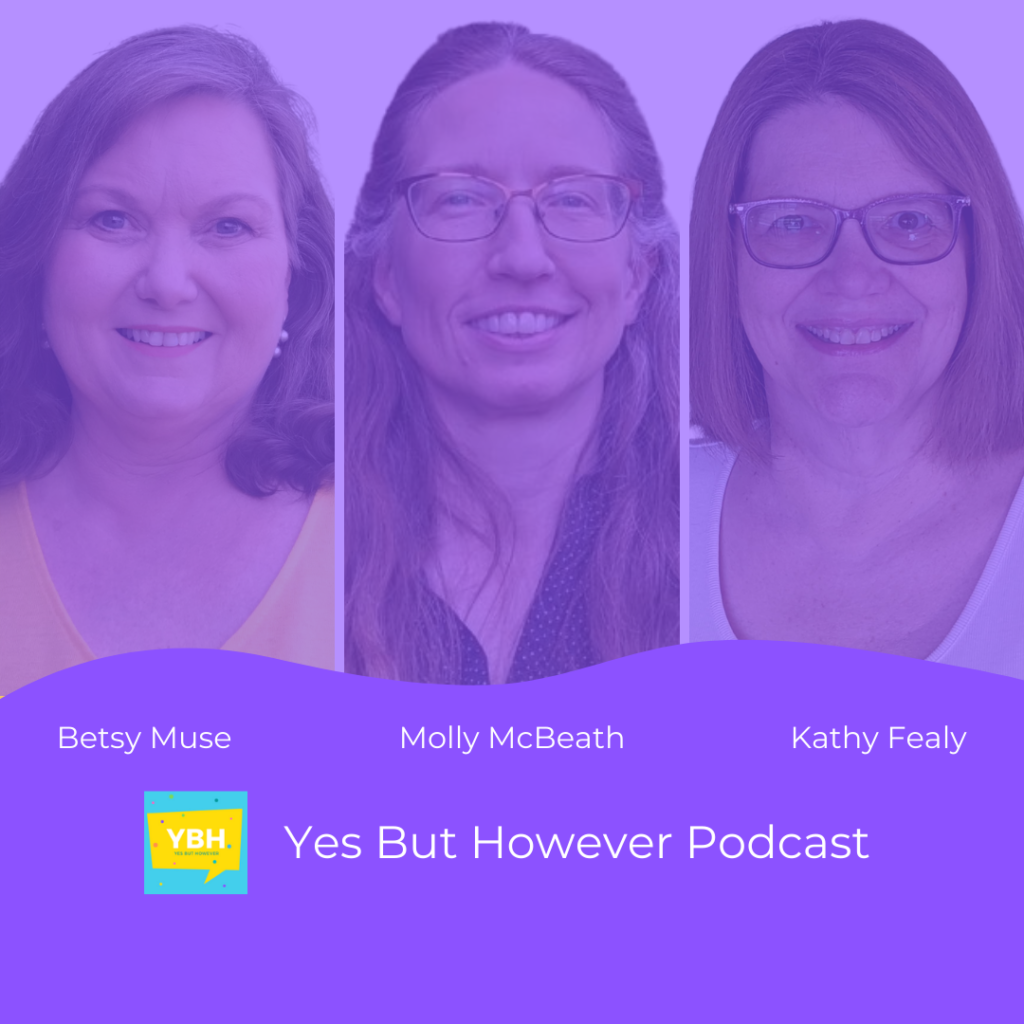
April 2022
S3, Ep 2 - Catalysts to Training
Is learning a case of nature vs. nurture when it comes to entrepreneurs? Betsy, Molly, and Kathy discuss what gets us into the “classroom” and away from paying work. See if our experiences match yours on this episode of Yes But However.
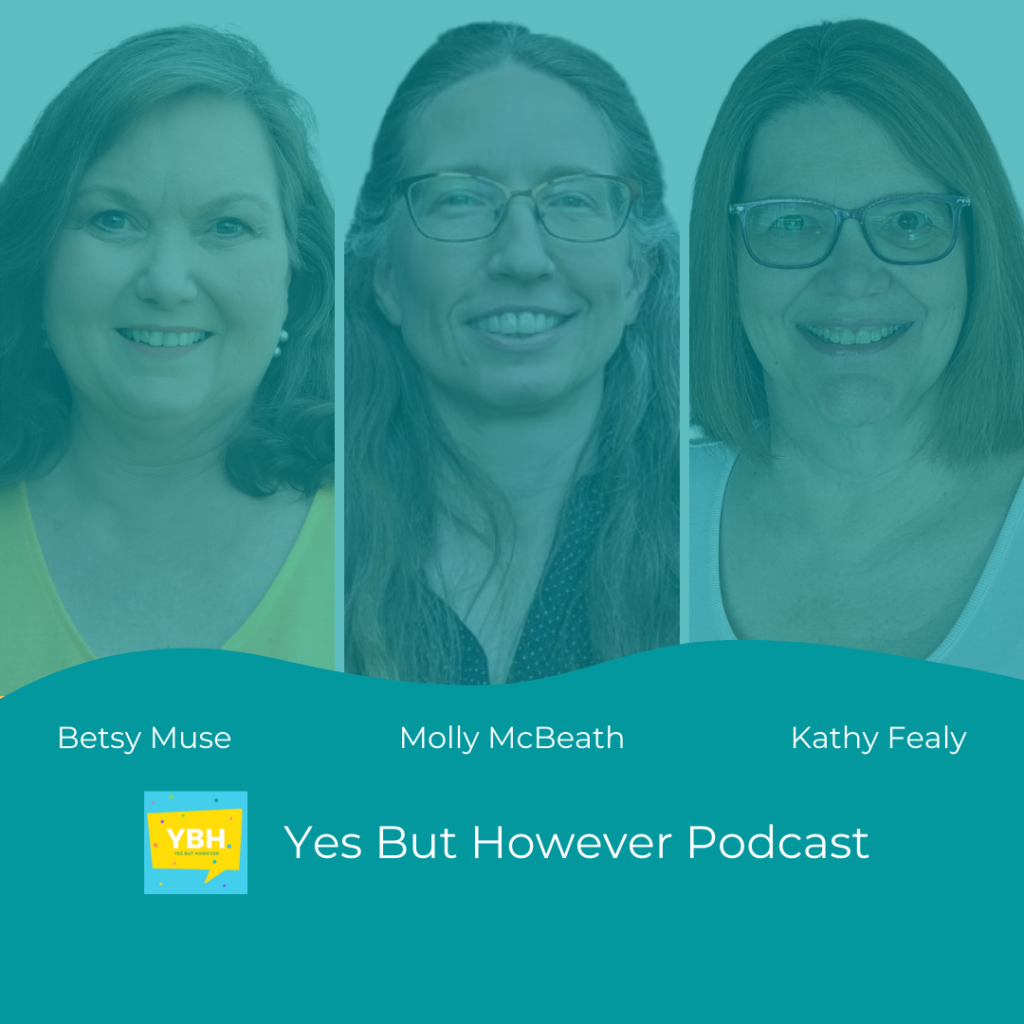
April 2022
S3, Ep 3 - Training Hacks
How does anyone find time to take additional classes or training…let alone practice their craft when running a business (or working for an employer)?
In this episode of Yes But However, we share our tips for fitting in the time to upskill.

